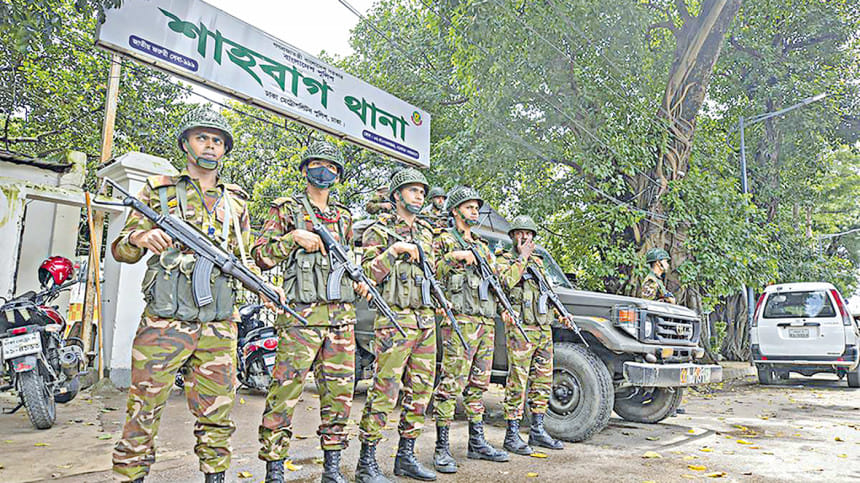Empowering Army officials as special executive magistrates

It has been two months since the current interim government took over after the fall of the previous authoritarian regime. Although the interim government has taken some commendable initiatives, the law-and-order situation has manifestly deteriorated in many places. Recent incidents including multiple deaths in mob lynchings, attacks on religious institutions, attacks on accused individuals in the court premises, and anarchy in the garment sector have created a crisis of public confidence in the ability of the law enforcement agencies. As per a recent Daily Star report, 44 people died in mob violence only in the last two months (August-September).
In such a situation, the government under sections 12(1) and 17 of the Code of Criminal Procedure 1898 (CrPC), assigned the commissioned officers of the Army with powers of the Special Executive Magistrates for 60 days. The government has empowered military officers to enforce a total of 17 sections of the CrPC. As per section 64 of the CrPC, when an offence is committed in the presence of a magistrate, he/she can arrest or order to arrest, the person. Moreover, in the presence of the Magistrate, he/she may issue a warrant for the arrest of any person at such time and in such circumstance as specified in section 65. On the other hand, if there is a warrant of arrest against a person outside the local jurisdiction of the court as per section 83, it can be executed by the concerned Magistrate. Moreover, according to section 100, if the special magistrate has reason to believe that any person has been illegally confined, then he/she is empowered to issue a search warrant.
Furthermore, under section 105, Special Magistrate can order to search in their presence and as per section 107, if any person disturbs the public tranquility, then the said person may be ordered to execute a bond, with or without sureties, for a period of at least one year or as the magistrate thinks fit. The most significant powers are given to commissioned military officers under section 127, which allows Special Executive Magistrates to order the dispersal of any unlawful assembly or any assembly of five or more persons likely to cause disturbance of public peace. Moreover, under section 128, the civil forces and under section 130, members of the military forces can disperse unlawful assemblies and direct arrest and detention of those who disobey the order. It appears that the military has been given enormous powers, but even after several weeks of taking over, there is no visible improvement.
Empowering military officers as Special Executive Magistrates has also happened in the past, but it certainly is quite rare and unusual. Vesting magistracy powers on the military can play a helpful role in bringing law and order situation back to normal; however, the military certainly cannot be a substitute for the police and civil administration. Therefore, as soon as possible, the police and civil administration should be effectively put to proper work, and the military should be taken back to its duties.
The writer is student of law, University of Asia Pacific.

 For all latest news, follow The Daily Star's Google News channel.
For all latest news, follow The Daily Star's Google News channel. 



Comments